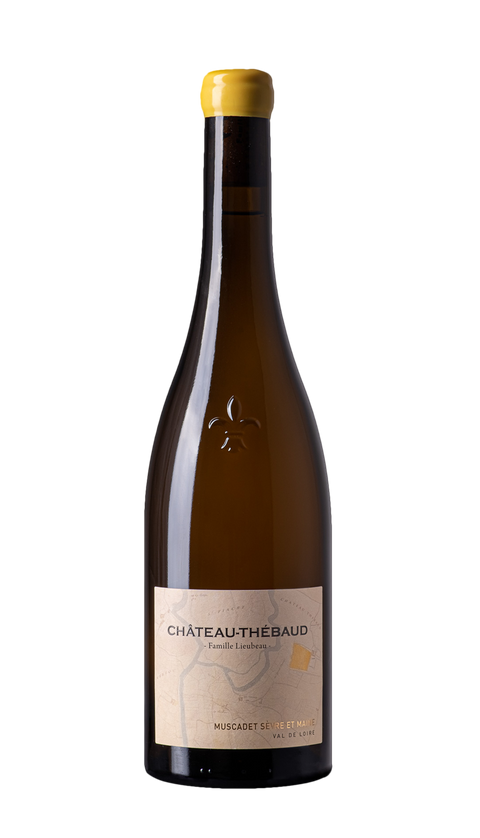
2018 Famille Lieubeau "Château Thébaud", Muscadet Sevre et Maine, Loire Valley, France
Here the mineral punch found in Clisson is more subtle, and the potential for the richness and complexity of Melon is revealed. No doubt part of this is from the age of these vines – over 70 years old – but also due to the difference of soil – schist and gneiss rather than granite. Aged for 36 months on its lees, it picks up a creamy spiciness that only emphasizes this wine’s profound minerality.
ABOUT THIS WINE
Tasting the Lieubeau family’s Clisson and Château Thébaud side by side, it is easy to understand why the crus were established in Muscadet. Here the mineral punch found in Clisson is more subtle, and the potential for the richness and complexity of Melon is revealed. No doubt part of this is from the age of these vines – over 70 years old – but also due to the difference of soil – schist and gneiss rather than granite. Aged for 36 months on its lees, it picks up a creamy spiciness that only emphasizes this wine’s profound minerality.
ABOUT THIS PRODUCER
Granite rock was used for centuries to build the massive fortresses that dot the landscape of Muscadet. Its density and structure were rarely breached by arrow, cannonball, or the good ‘ole medieval siege. Because of its density and the fact that it is everywhere in Muscadet, its unclear why anyone would think that this was the place to plant hectares and hectares of vines. The Romans might have gotten a few things wrong in France, but they did get something right: they planted vines on this lunar rock of a landscape. Today, this area is called Muscadet and is home to over 8,000 hectares of Melon de Bourgogne. Famille Lieubeau farms over 40 hectares of vines and produces both Muscadet Sèvre et Maine and Vin de Pays from grapes such as Chardonnay and Sauvignon Blanc. Regardless of the varietal, the vines are planted on rock, and in most cases, sheer cliffs of rock through which the roots have to bury for meters for any hydric source. The vines, and the wines, are fed by water that is awash in wet rock. It’s not a big shock that the wines smell and taste more like rock and minerals than fruit or flowers. Combine this with the cold Atlantic breezes and you’ve got an amazing cool climate, high cut, precise bottle of white wine. The Lieubeau family takes great care to vinify the wines according to exposition, density of granite, and harvest date. Farming for their Folle Blanche, Chardonnay and Sauvignon is certified by Terra Vitis and all of their Melon is now certified organic by Agriculture Biologique. They keep yields as low as possible to produce wines that express the varietal character and terroir – not just acid. These are delicious, vibrant wines that are easily among the best values in the portfolio.
Details:
| Grape(s) | Melon de Bourgogne |
| Farming | Organic |
